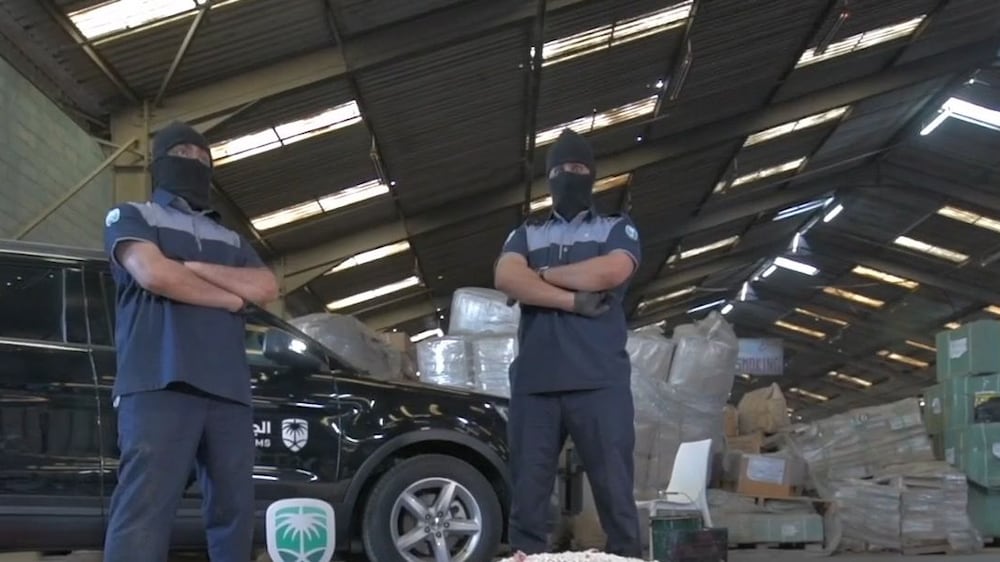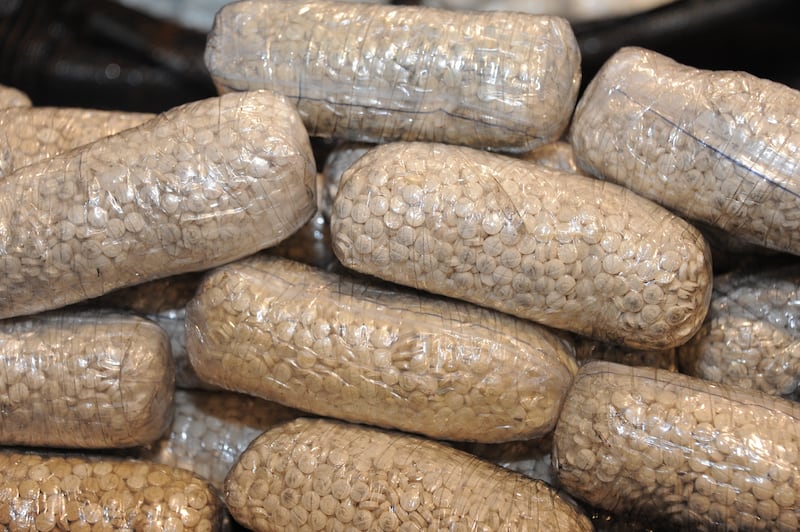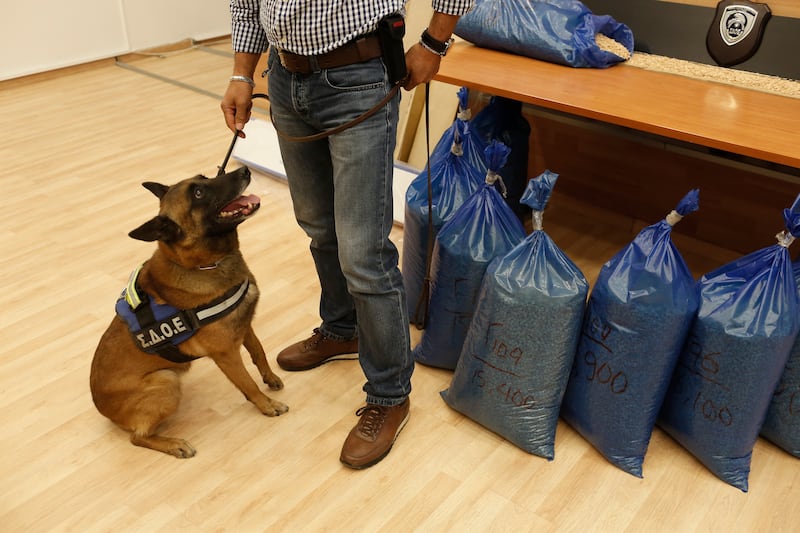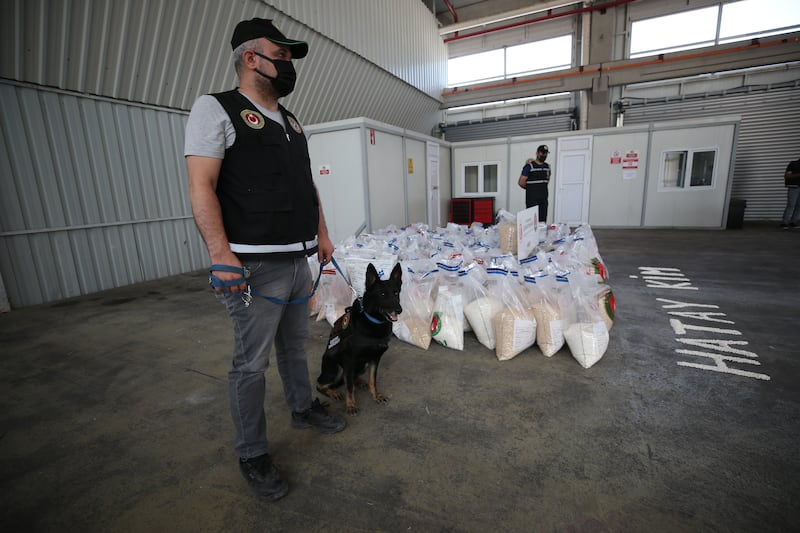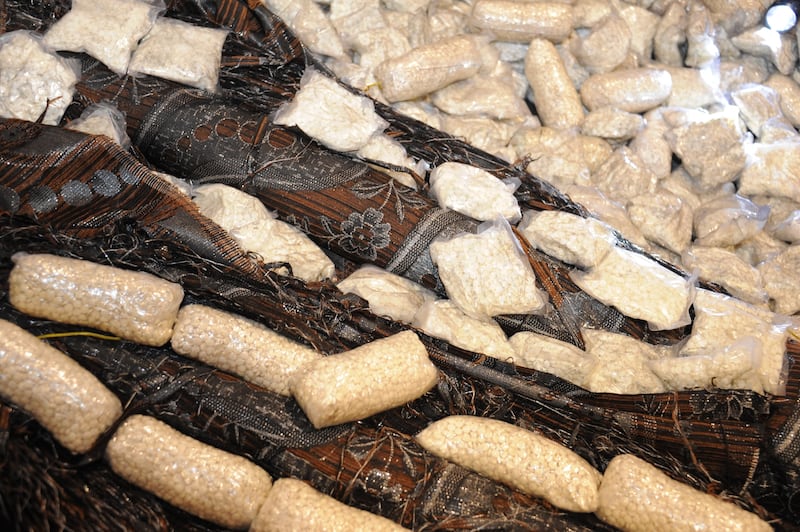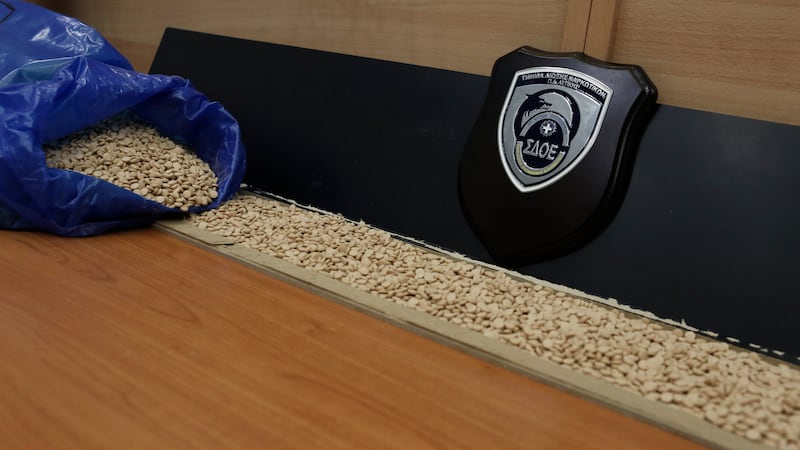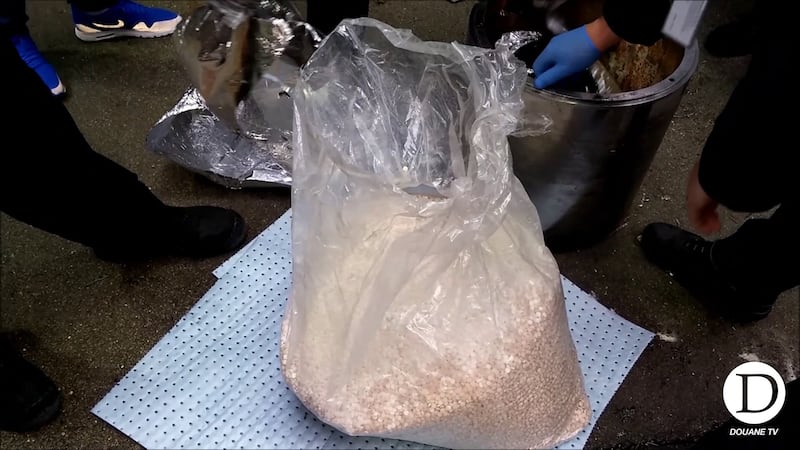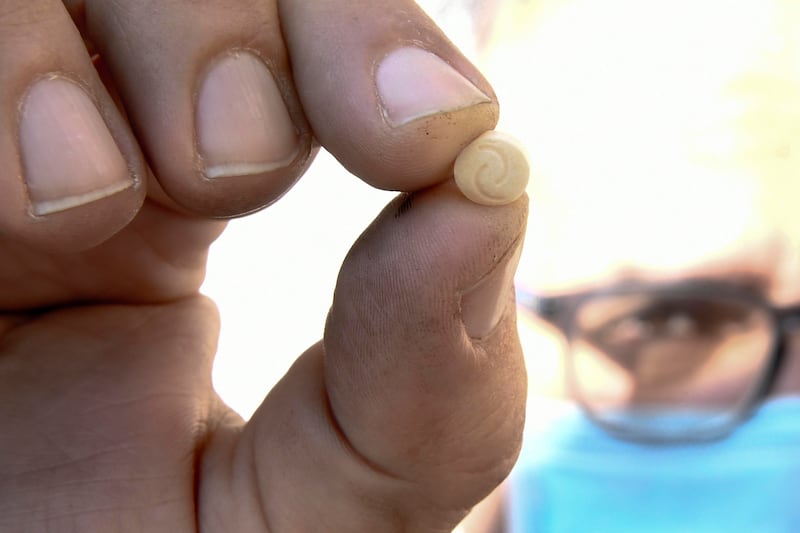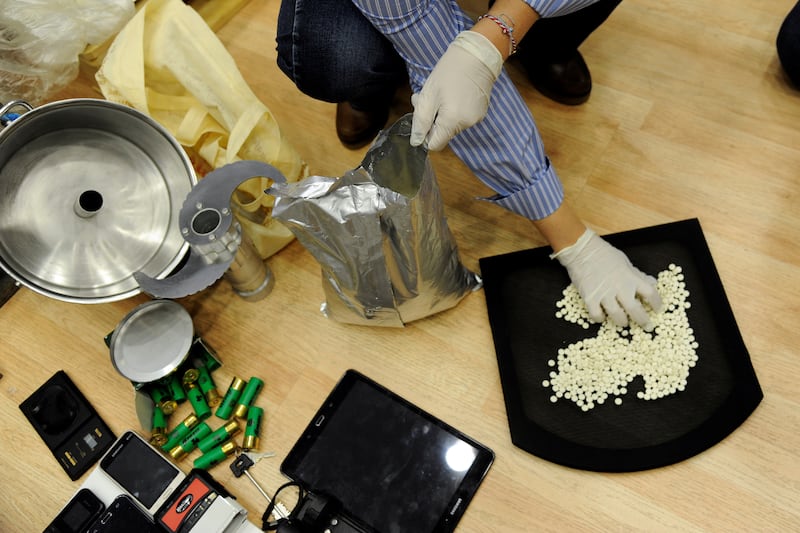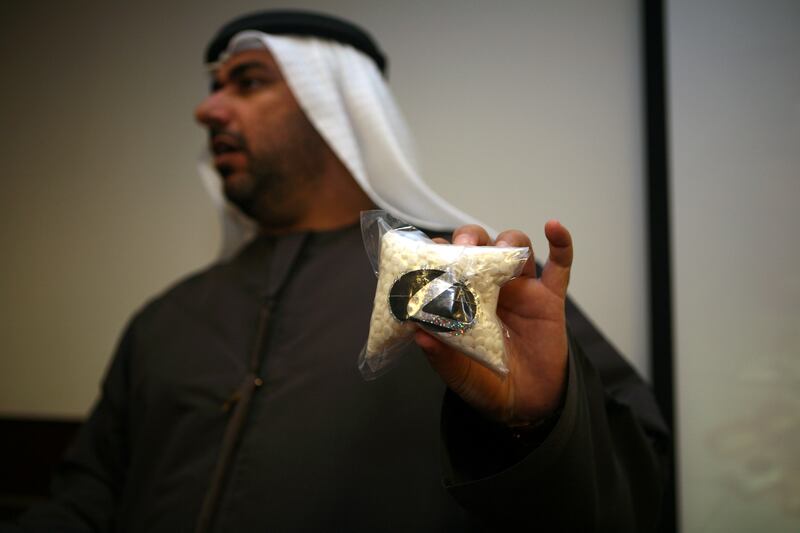For Saudi Arabia's customs agency, a Jack Russell terrier, a German shepherd and a Belgian malinois are the latest weapons on the front line of security in the kingdom.
Saudi Arabian customs and internal security units are operating world-class K-9 units to counter smugglers trying to bring shipments of Captagon and other illegal drugs into the country, security officials told The National.
The K-9 unit has been running for more than 30 years, and The National was given rare access to the centre that trains, observes and legislates on everything related to police dogs in the kingdom. As well as countering drug smuggling, the unit also helps protect the country from terrorist threats.
Captagon in the Middle East
Located in the centre of Riyadh is the National K-9 Unit Department, which has 28 Saudi trainers, all of whom has worked with the dogs for at least 15 years.
The team is currently training 160 dogs and their handlers at the facility. When deployed at customs facilities around the kingdom, each K-9 specialist is assigned to one dog. The dogs themselves are trained in different specialities.
"We train for drug detection, live explosive detection. The canine can also detect weapons, money, and tobacco,” said Abdullah AlSalloum, director of the National K9 Programme at the Zakat, Tax and Customs Authority.
There are more than 1,100 K-9 dogs employed in the private and government security sectors. Of these, 370 are stationed at 20 border crossing points with their specialist personnel, taking on a range of detection tasks.

The specialists and their dogs first undergo training.
"The standard is four months, but it really depends on which sector they are training for, explosives or drugs. Each programme is different," Mr AlSalloum said.
While training the dogs are exposed to all materials that could be encountered in their role.
Training involves simulated areas and situations that the dogs will deal with in real life, including airport luggage conveyor belts, cars and lorries.
When used for counter-narcotics work, the dog can detect cannabis, marijuana, amphetamines, crystal meth and tobacco.
In the K-9 unit that specialises in explosives, the dogs are trained to detect substances that are used for terrorist attacks, such as RDX, Semtex, C4, TNT and gunpowder.
"They are highly trained; even if someone had put drugs in a bag and he or she removed it later, the dog could smell the residue," one of the trainers said.
While the K-9 unit currently specialises in one sector, the centre is working on a programme that will train the dogs to have more all-round capabilities.
“Among the developments that we are working on [is] an integration process in the sense of unifying the process for dogs to discover all the elements that matter for us,” Mr AlSalloum said.

For customs, the most commonly used dogs in Saudi Arabia are Belgian malinois.
"From experience, they are the best for our weather, plus they bear the harsh working conditions."
That breed is followed by a mix of German shepherd, Dutch shepherd, and the golden retriever.
Mr AlSalloum said that when selecting the right dogs for the job, it is not the breed that matters. Rather, it is the dog's prominent characteristics.
"The dogs must be courageous, they must love recovering stuff, and be fearless, meaning they are not hesitant to enter any place, whether it is dark or at height."
Jack Russell terriers are another key part of the K-9 unit, and a breed that few people expect to see when they think of working dogs.
"We use terriers in airport terminals, they are highly efficient, and they don't scare the passengers."
While dogs have an average life span of 10-12 years if they are kept as domestic pets, it is a different situation for working dogs.
“We can't really say for how long we use them. It is different from one dog to another, as long as they are in good health and are excellent in technical ways, we keep them,” Mr AlSalloum said.
Most of the dogs that have to stop working are simply too old to continue effectively, he said.
The centre has an agreement with the Saudi Animal Care Association, which takes any dog that is no longer capable of performing the tasks required.
"They are either sheltered there or it is arranged for them to be sent to an adoption family."
